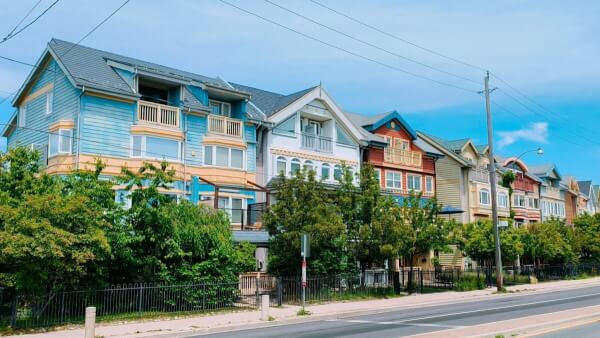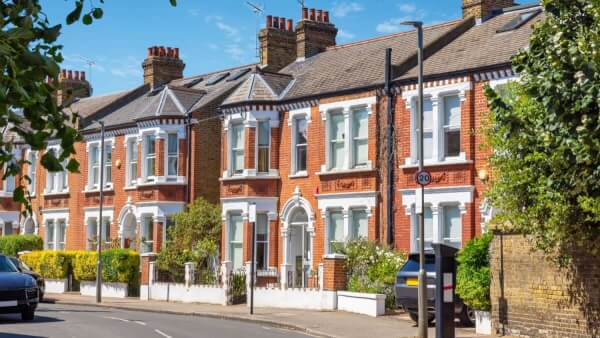Buying property in Canada as a foreigner
Read our comprehensive UK guide to buying property in Canada as a foreigner, including average prices, fees, taxes and where to start house hunting.

Have a holiday home in Malta and thinking of selling up? Perhaps you have an investment property and it’s the ideal time to sell, or you might be moving back to the UK after living there.
Whatever your plans, read on. We’ve put together a comprehensive guide to selling property in Malta as a Brit. We’ll walk you through the process step-by-step, as well as covering fees, taxes, timescales and much more.
And if you need a low-cost, transparent way to transfer the proceeds of your property sale back to the UK, check out the Wise account from the money services provider Wise. It’s an international alternative to a bank account that lets you manage your money in 40+ currencies including British pounds and euros.
You can send, receive and convert money at great mid-market exchange rates and low, transparent fees*. Your money is always safeguarded and you’ll also get dedicated support when sending large amount transfers.
Learn more about the Wise account 💰
If it’s your first time selling a property in Malta, you’ll need to get to grips with how the process works.
You may have an idea based on your initial experience of buying a Maltese property, but it works a little differently from the seller’s side of things.
Let’s run through the main steps, so you know exactly what to expect.
Before you do anything else, it’s a good idea to get all your documentation together. This can help prevent delays further down the line.
Here’s what you should have ready, just in case it’s needed:¹
Now, you need to find an estate agent to market and sell the property.
It isn’t mandatory to use one, but it could be a good idea if you’re unfamiliar with the local property market or not actually living in Malta.
An agent should have the local knowledge and expertise to sell your property at a good price. They’ll also handle everything from taking photographs to hosting viewings, as well as communicating with buyers.
Crucially, your estate agent they’ll also give you a valuation, which will help you set the purchase price.
Estate agents in Malta need to be licensed, so make sure to check this before choosing one. Ideally, you’ll be able to get a personal recommendation from someone you know who has successfully sold a Maltese property.
The next big step is to put your property on the market and advertise it to potential buyers.
Before you do, it’s worth taking a little time to clean, declutter and do everything you can to show off the property’s best features in good quality photographs (your estate agent will help with this).
Your estate agent will play a central role in advertising the property, but you can also list it on popular local property sites such as:
It’s recommended to hire a solicitor to give you advice on your Maltese property sale, and to oversee the legal and administrative aspects of the sale.
A personal recommendation is a good way to find a solicitor, but you can also find a list of English-speaking property solicitors on the UK Government website.
Buyers can submit offers directly to you, but it could be easier if they go through your real estate agent. They can help you negotiate with buyers and agree on a final purchase price.
Once the buyer’s solicitor has completed all the necessary due diligence checks, it’s time for both parties to sign the preliminary contract. This is known as the Promise of Sale Agreement or Konvenju.
This will be drawn up by the notary, who may be appointed by the buyer or you can appoint one yourself. Once it’s ready, have your solicitor check it over before you sign.
The buyer will usually pay a deposit of 10% of the purchase price at this stage, the money being held either with the notary or the estate agent.
The Konvenju agreement usually lasts three months,² so you can expect a completion date to fall within this period. During this time, the notary will carry out the following:
Once all the terms and conditions of the Promise of Sale Agreement have been met and the legal work completed, a date can be set for both parties to sign the final deed of sale.
The buyer will pay the remaining balance, you’ll hand over the keys and the property will be registered in the new buyer’s name.
All fees and taxes will need to be paid at this point too - we’ll cover what to expect later in this guide.
| 💡 Read more: Receiving money from abroad in the UK: a how-to guide |
|---|
Your circumstances will have a lot to do with whether or not it’s the right time to sell your property in Malta. For example, how much you originally paid for the property along with how much prices have risen (or fallen) in the region.
But more generally across the country, it could be a good time to sell. One of the main reasons for this is that property prices continue to rise.
According to data from the National Statistics Office in Malta, property prices in the second quarter of 2024 increased by 6.8% compared to the same period in 2023. This rise is part of a trend in house price increases spanning the last 15 years.³
So if you bought at the right price, now could be an advantageous time to sell up.

It takes around 3 months to complete a property sale in Malta.
However, the time it takes to sell a property can vary based on a few factors, some of which will be out of your control.
For example, the buyer may take longer than expected carrying out due diligence checks, or there may be an extra legal or other complication which takes time to resolve.
It may also depend on the asking price and how fast properties are selling in the local market.
However, one factor that can affect the timescale of Maltese property sales is the expiry date of the Promise of Sale Agreement (Konvenju). This agreement typically lasts 3 months, giving buyer and seller time to meet the conditions of the contract and complete the transaction.²
It’s strongly recommended to appoint a solicitor specialising in real estate or conveyancing work in Malta. They can draw up and translate documents, check over conditions of contracts, give you advice about the selling process and so much more.
This could make your property sale go more smoothly and crucially, help you avoid a costly mistake.
It’s not a legal or mandatory requirement to have a Maltese bank account to sell property in the country.
You may be able to use an international account or even your current account with a UK bank.
Another thing to note is that international transfers could get expensive, especially if the provider adds a margin to the exchange rate to convert your euros to British pounds. Consider checking out Wise to handle your international large transfers with mid-market exchange rates and low, transparent fees*.
So, how much will it cost you in fees and taxes to sell property in Malta? Let’s take a quick look at the main costs involved:
| Tax/fee name | Rate/fee |
|---|---|
| Real estate agent fees | Around 5% of sale price⁴ |
| Capital gains tax | 8-10%⁵ |
| Legal fees | Varies |
| Notary fees | Usually paid by buyer |
Estate agent fees and commissions in Malta may vary, but they generally tend to charge around 5% of the total sale price. Make sure you check whether VAT is added on top when discussing fees.⁴
When you sell a property in Malta, you’ll need to pay capital gains tax (CGT) on any profit you make from it. So, the difference between what you paid for the property and what you sell it for, minus any fees and expenses.
Somewhat confusingly, CGT tends to be called a few different names - including final withholding tax and property transfer tax.
The rate of tax is 8% for most property sales, but it hops up to 10% for properties bought before 1 January 2004. If the property has been your main home for the last three years, you may be exempt from paying capital gains tax when you sell it.²
Complicating things further is the fact that the UK also has rules on capital gains tax for UK citizens selling property in Malta or anywhere else in the world.
If you’re a UK resident and sell a Maltese holiday home, for example, you’ll need to pay the tax in the UK. However, you can potentially claim relief if you’re taxed twice, in both countries.⁵
Tax can be complex, so it’s best to get advice from a tax specialist before proceeding.
If you appoint a solicitor in Malta, their fee will vary depending on the scope of the work. You’ll need to contact solicitors to get an estimate.
The notary involved in the transaction will also have their own fees, but these are usually paid by the buyer who appointed them. If you appoint the notary as the seller, you’ll need to cover the fee. This can vary depending on how much and what kind of work you’ve instructed them to do.
For anyone considering moving to Malta (or staying there if you’re a temporary resident), it’s useful to know about tax residency and how it relates to property ownership.
Owning a property doesn’t automatically make you a tax resident in Malta. But how much time you spend living in the property does.
Malta has something called the 183-day rule to determine tax residency status. You’re considered a tax resident for the year if you spend 183 days or more in Malta within that year, or if you’re a permanent resident in your Maltese home.⁶
Once the deal is done, you might need to work out the best way to transfer the proceeds from your Maltese property sale back home to the UK if you don’t live in Malta.
Here’s where Wise can help you save money and avoid those pesky hidden fees and exchange rate markups. Open a Wise account online and you can send money between Malta and the UK for low, transparent fees* and great mid-market exchange rates.
Here’s an overview of the main benefits for using Wise: |
|---|
|
Sources used:
Sources last checked on date: 18-Nov-2024
*Please see terms of use and product availability for your region or visit Wise fees and pricing for the most up to date pricing and fee information.
This publication is provided for general information purposes and does not constitute legal, tax or other professional advice from Wise Payments Limited or its subsidiaries and its affiliates, and it is not intended as a substitute for obtaining advice from a financial advisor or any other professional.
We make no representations, warranties or guarantees, whether expressed or implied, that the content in the publication is accurate, complete or up to date.

Read our comprehensive UK guide to buying property in Canada as a foreigner, including average prices, fees, taxes and where to start house hunting.

Read our comprehensive UK guide to buying property in Indonesia as a foreigner, including average prices, fees, taxes and where to start house hunting.

Read our comprehensive guide for non-residents selling UK property, including fees, taxes and timescales.

Read our comprehensive guide to selling property in the US, including fees, taxes, timescales and a step-by-step guide to the process.

Read our comprehensive guide to selling property in Switzerland, including fees, taxes, timescales and a step-by-step guide to the process.

Read our comprehensive guide to selling property in Portugal, including fees, taxes, timescales and a step-by-step guide to the process.